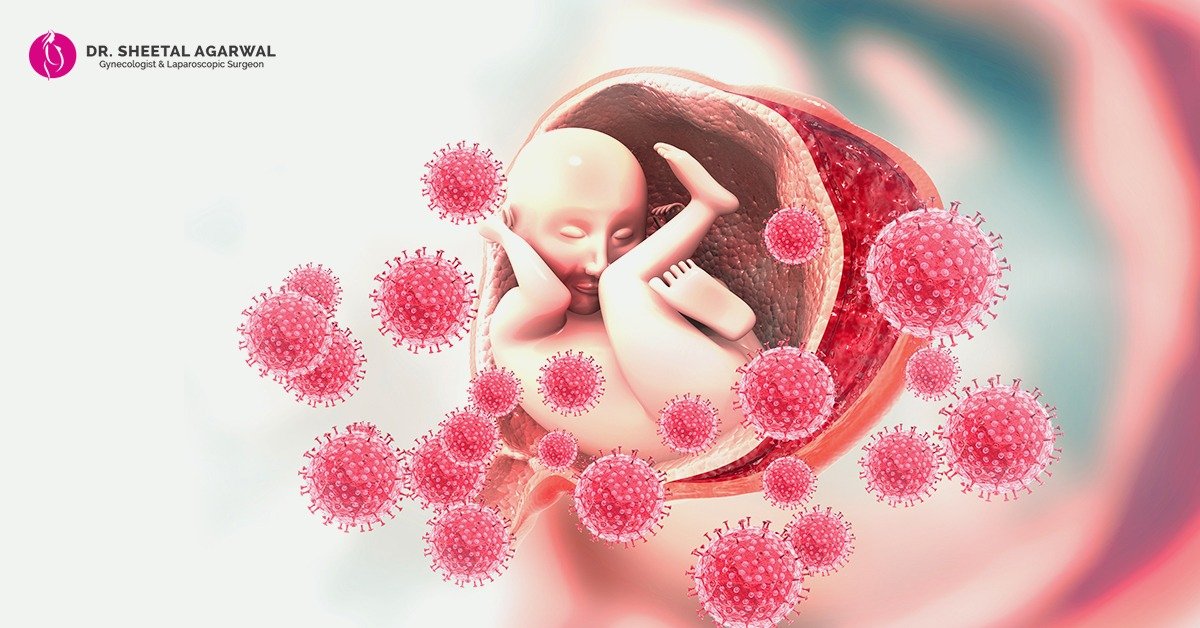The world celebrates the month of February as an awareness month against Prenatal Infections. These infections are what a pregnant woman can transfer to her child. Thus posing serious dangers and complications in the baby’s life on Earth. Not only are these infections harmful for the unborn baby but also to the to-be-mother. Yet, not many couples are informed about prenatal infections. That’s why it is crucial to spread awareness and let expecting mothers know that a few precautions and steps can help her and her baby have a healthy future ahead.
This article will inform you about the most common types of prenatal infections that you need to stay clear from. Along with that, we’ll explain the damage that you can expect from these infections and how you as a mom can prevent acquiring them.
The 10 Common Types of Prenatal Infections
1. Urinary tract infections
UTIs are common during pregnancy due to changes that the expecting mother’s body has to go through. However, if not treated, such infections can lead to complications like prenatal mortality, preterm birth, and pyelonephritis (inflammation in the kidneys).
2. Syphilis
A sexually transmitted infection, Congenital Syphilis does not show any clear symptoms until after a few weeks of birth. Rashes on the skin, anaemia, jaundice, and delays in fetus development are the signs you should look out for.
3. Zika Virus
Transmitted by the bite of a particular type of mosquito, Zika Virus can lead to stillbirth, brain damage or can stunt the growth of the unborn baby’s head. It can be also transmitted through intercourse.
4. HIV
Another sexually transmitted disease, HIV can pass to your baby during pregnancy, delivery, or breastfeeding. HIV damages the immune system and may cause swelling of the liver, spleen and lung tissue among various other complications.
5. Strep/ GBS
Also known as Group B Streptococcus (GBS), Strep is a type of bacterium that doesn’t usually harm unless it is carried in the mother’s vagina. Due to this, the unborn child can get infected during delivery. Strep can lead to diseases like Pneumonia, Sepsis, and Meningitis.
6. Listeriosis
Caused due to the bacterium Listeria, Listeriosis is known to cause life-threatening diseases to your child and may even lead to miscarriage or stillbirth. Since it is found readily in the environment, the bacteria can enter your body easily through the food you eat.
7. Cytomegalovirus (CMV)
CMV is known to increase the risk of complications in the first 4 months of your pregnancy. It can lead to delays in the development of the fetus, Cerebral Palsy and even vision or hearing loss in the baby.
8. Fifth Disease
Parvovirus B19 is known to cause a rash illness called the Fifth disease. The infection can cause anaemia in the baby or a miscarriage. Although, since most pregnant women are immune to Parvovirus B19, the Fifth disease is not something to worry about.
9. Rubella
An expecting mother is more at risk from Rubella virus if it infects her in the first trimester of pregnancy. Also known as German Measles, the virus can lead to birth defects, miscarriage, low birth weight, etc. However, it is not something to worry about much as vaccination can help you out.
10. E. Coli
Escherichia Coli is known to cause sudden infant death syndrome (SIDS) in newborn babies. It may also cause complications like miscarriage, low birth weight, and diarrhoea. It’s usually found in faecal material and urine.

How can a to-be-mom stay away from these infections?
Here are some steps and precautions that you can take so as to ensure that you do not transmit any infections to your lovely little unborn child. This way you can provide him/her a healthier life to live.
● Get tested for all common types of prenatal infections no matter what stage of pregnancy you are in.
● Ask your doctor about vaccinations and get the essential ones.
● Avoid people with infections.
● Do not stay in places populated with mosquitos. Sleep using a mosquito net. This will help you avoid getting infected by prenatal infections like Zika Virus.
● Wash your hands regularly. Take care of your hygiene as much as possible. Take special care after using the toilet, dirty napkins and towels, or if you live around animals. You can use an alcohol-based disinfectant as well.
● Prenatal infections like Listeriosis can occur due to the diseased environment. For that reason, you must avoid food that might be contaminated. Wash fruits and vegetables properly with clean water before eating them. It’s also suggested to avoid the consumption of peels like you do with some fruits like apples and tomatoes.
● Try to cook your meat well before you consume it.
● Stay away from the droppings of pets, lizards, rodents, etc.
● Take medications and vitamins only if recommended by a trusted and experienced doctor.
● Stay away from contaminated soil. Use gloves if you can while gardening. And wash your hands properly afterwards.
● Avoid unpasteurised milk and the products like Cheese that are made from it.
With all that said, the best way to learn about prenatal infections and prevent them all together is by visiting a trusted doctor. This way you get all your answers according to your medical conditions face to face with the doctor. Also, if god forbid, you or your child is diagnosed with any such infection, you should get your vaccinations without wasting any time.
If you are pregnant and have a fear of prenatal infections, call us for a consultation right away!


